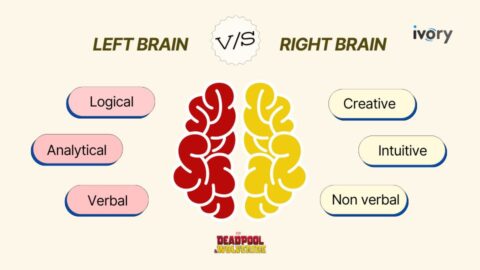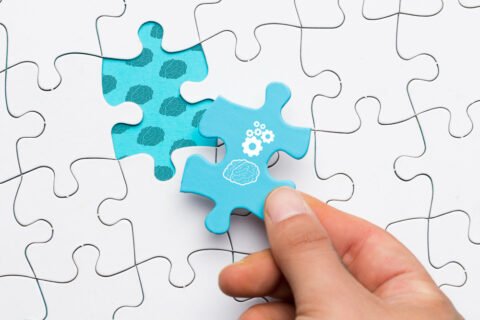Have you ever entered a room and forgotten why? Misplaced your keys, perhaps? Such moments are common and often not a cause for concern. But there comes a point where forgetfulness could hint at something more significant than just ageing. This comprehensive guide will explore the critical distinctions between typical memory lapses and symptoms that may suggest dementia, including Alzheimer’s disease.
Introduction to memory loss
As we age, experiencing occasional memory slips like forgetting names or misplacing items is perfectly normal. This form of forgetfulness is part of the natural ageing process and usually doesn’t signify any serious neurological condition. However, when these lapses occur more frequently and impact daily life, it might be time to explore the underlying causes of memory loss, which can range from benign to serious.
Understanding Dementia
Dementia is an umbrella term for various neurodegenerative conditions, including Alzheimer’s disease, where cognitive decline interferes significantly with daily life. It’s crucial to differentiate between occasional forgetfulness and the persistent, deteriorating memory loss associated with dementia.
Here’s what to know:
Forgetfulness vs. Dementia: Missing a monthly bill is forgetful; forgetting how to calculate a bill is more concerning.
Normal Ageing: Misplacing keys but recalling later.
Dementia: Forgetting what keys are used for.
Signs and symptoms of memory loss
Recognizing the early signs of dementia can lead to timely intervention. Key symptoms include:
- Difficulty recalling recent events or conversations.
- Regularly misplacing items without retracing steps.
- Struggling with everyday tasks and decision-making.
- If memory loss disrupts daily activities, it may indicate a condition like dementia rather than normal age-related changes.
Risk factors and causes
Multiple factors contribute to dementia, including genetics, lifestyle, and environmental influences. Common causes and risk factors include:
- Age, particularly beyond 65.
- Family history of dementia.
- Cardiovascular issues such as hypertension or diabetes.
- Lifestyle factors like smoking and lack of physical activity.
- Understanding these can help in managing risks associated with cognitive decline.
When to seek medical help
Early detection of dementia is crucial for managing the condition effectively. Consult a healthcare provider if you notice:
- Persistent memory problems that interfere with daily life.
- Challenges in planning or problem-solving.
- Confusion with time or place.
- Sudden changes in mood or behaviour.
- These signs warrant a professional evaluation to determine the cause and appropriate treatment.
Diagnosis and treatment options
Diagnosing dementia involves a thorough medical history, physical examination, and diagnostic tests like MRI and blood tests to assess your brain health. While there’s no cure for most types of dementia, treatment options include:
- Medications to potentially slow progression.
- Therapeutic strategies to manage symptoms.
- Lifestyle adjustments to improve overall cognitive function.
You can also benefit from finding out your cognitive age and how it compares to your actual age.
Prevention strategies
Preventive measures can’t guarantee immunity from dementia but can delay its onset and mitigate its impact.
Effective strategies include:
- Engaging in physical activities.
- Maintaining social connections.
- Adopting a brain-healthy diet rich in fruits, vegetables, and whole grains.
- Regular cognitive training through puzzles and games.
Support and resources
Navigating memory loss or dementia is challenging, but support is available. Consider these resources:
- Alzheimer’s Association: Provides comprehensive information and support networks.
- National Institute on Aging: Offers up-to-date research and health information.
- Local support groups and health services for personalized assistance.
Frequently Asked Questions
What are the early signs of dementia?
Early signs include frequent memory loss, confusion over simple tasks, difficulty with language, and changes in personality.
Can stress cause memory loss?
Yes, chronic stress can impair memory and cognitive functions by affecting brain regions like the hippocampus.
Is memory loss a normal part of ageing?
Mild memory lapses are a typical aspect of ageing but severe memory loss that disrupts daily life is not.
How is dementia different from Alzheimer’s disease?
Dementia is an overall term for conditions characterised by cognitive decline, whereas Alzheimer’s is the most common cause of dementia.
What are the stages of dementia?
Dementia progresses from mild (forgetting details) to moderate (requiring help with daily tasks) to severe (complete dependence).
What are the risk factors for developing dementia?
Key risk factors include ageing, genetic predisposition, lifestyle choices, and underlying health conditions.
Can dementia be prevented?
While there’s no certain way to prevent dementia, healthy lifestyle choices can significantly reduce risk.
How is dementia diagnosed?
Through clinical evaluations, neurological exams, and brain imaging techniques.
Are there medications to treat dementia?
Medications can manage symptoms but not cure dementia. Common treatments include cholinesterase inhibitors and memantine.
What lifestyle changes can help improve memory function?
Regular physical exercise, a balanced diet, cognitive training, and social engagement can enhance memory.




